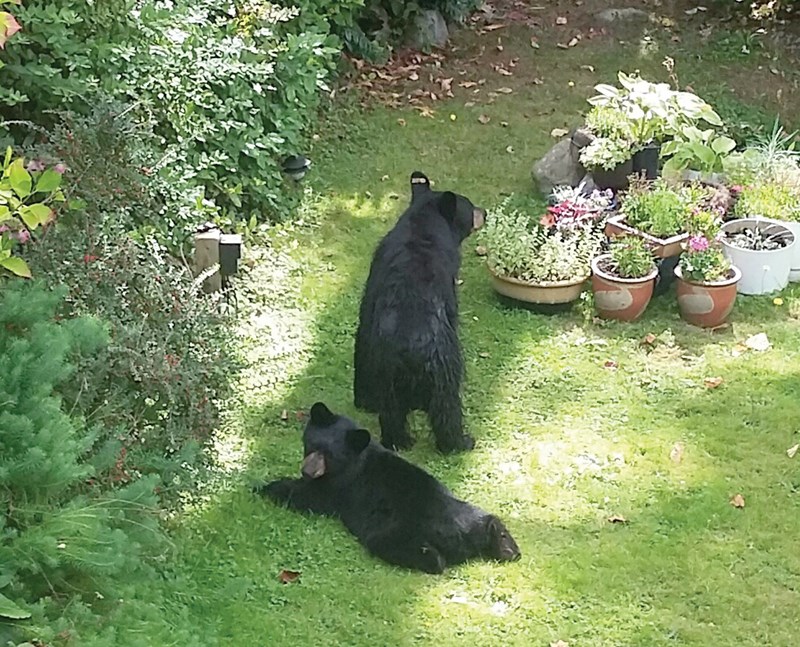Another three bears are dead in Blueridge, one after a late-night collision on the road and two destroyed by the Conservation Officer Service.
North Vancouver RCMP say the driver of an SUV collided with a young male bruin just after 2 a.m. Wednesday on the 1800-block of Berkley Road.
“Upon arrival, the bear was deceased in the northbound lane. Witness saw a grey/silverish SUV last seen travelling south on Berkley,” said Cpl. Richard De Jong.
The bear was about two or three years old and weighed roughly 136 kilograms (300 pounds). District of North Vancouver sanitation workers collected the carcass for disposal.
While the driver can’t be charged with a hit and run because those laws don’t apply to bears, police would still like to have a word with him or her, De Jong said.
The SUV “most definitely” would be damaged, he added.
“At this point, we’re looking for anyone who may have a licence plate number,” he said. “If they go to ICBC, they may start asking some questions as to what happened. Did they leave the scene on purpose? Were they not aware?”
On Sept. 22, conservation officers tranquilized and shot a mother and yearling that had become “food conditioned” and lost their fear of humans, according to Insp. Murray Smith. The pair were the subject of more than a dozen complaints since mid-August.
The mother had previously been trapped and relocated to the top of Indian Arm in 2013, and the yearling wasn’t eligible to be taken to a wildlife rescue, Smith said.
“There is no facility to rear two-year-old bears. Critter Care only takes cubs of the year,” he said.
Christine Miller, education co-ordinator with the North Shore Black Bear Society, said the male hit and killed on the road was one that may have been spotted limping through the neighbourhood recently. The mother and yearling were also well known.
“She wasn’t particularly healthy anyways. I think life was really hard for this really small young mother but the cub was just the most magnificent, healthy-looking guy imaginable,” she said.
Miller has stepped up canvassing in the area since the last bear was shot in mid-September. While there are still occasional bird feeders and unpicked fruit, other forces of nature may be driving the bears into suburban neighbourhoods, Miller said. “I really think there’s something else going on here. I think there’s just a shortage of natural foods. It’s not that Blueridge residents are being really negligent.”
Another mother bear, this one with two cubs, is also roaming around Blueridge, Miller said, indicating they are continuing to find sources of food where they shouldn’t.
The conservation officer service has received 627 bear reports in North Vancouver and West Vancouver so far this year. In 2015 there were 870.
“Of course, we’re only in September so we’ve got another couple of heavy months,” Smith said.
So far, conservation officers have issued $345 fines to three people on the North Shore for intentionally feeding dangerous wildlife or placing attractants. District bylaw workers have handed out two bylaw infraction notices. In West Vancouver, four homeowners have been fined $300 and two have received warnings.
The district prefers education over more punitive measures, said spokeswoman Stephanie Smiley.
Smith said people hesitate to report bears for fear they’ll be killed, but early intervention before they become habituated to garbage is often their best hope. “We’d rather deal with the people. That’s our preference, rather than deal with the bears,” he said.



